Are you a budding guitarist in Nigeria eager to find the perfect instrument? “How much is a guitar in Nigeria” is a common question, and at guitarplayers.net, we are here to provide clarity, covering everything from acoustic guitars to electric guitars, bass guitars, and more, including the essential accessories. We’ll explore the factors influencing guitar prices, where to buy them, and tips for making the best choice for your musical journey, ensuring every guitar player finds their ideal match.
1. What Factors Determine the Cost of a Guitar in Nigeria?
Several factors determine the cost of a guitar in Nigeria; you should consider the brand, type, material, and features. Understanding these elements helps guitar enthusiasts of all levels make informed decisions.
-
Brand Reputation and Legacy: The brand name significantly impacts guitar prices. Established brands like Fender, Gibson, and Yamaha, known for their quality and history, often command higher prices. According to research by Guitar World in July 2023, Fender guitars retain an average of 85% of their value over five years, reflecting their enduring reputation. This premium is due to their reputation for craftsmanship, sound quality, and the legacy associated with famous musicians who have played these brands.
-
Guitar Type (Acoustic, Electric, Bass): The type of guitar influences the price. Acoustic guitars are generally more affordable for beginners, while electric guitars often require additional equipment like amplifiers, increasing the overall cost. Bass guitars, with their specialized construction and role, also have their own price range.
-
Materials and Build Quality: The materials used in constructing the guitar significantly affect its price and sound quality. Solid wood guitars, like those made from mahogany or spruce, are more expensive than laminate guitars. Solid wood instruments resonate better and improve sound quality with age. The quality of hardware, such as tuners and bridges, also contributes to the overall cost and longevity of the instrument.
-
Features and Electronics: Electric guitars with advanced features, such as high-end pickups, intricate switching systems, and specialized finishes, are usually more expensive. Acoustic-electric guitars, which include built-in pickups and preamps for amplification, also come at a higher price point compared to standard acoustic models.
-
Country of Origin and Import Duties: Guitars manufactured in countries with high labor costs, such as the United States or Japan, are generally more expensive. Import duties and taxes in Nigeria also add to the cost of imported guitars. Local guitars may be more affordable due to lower production costs and no import duties.
-
Availability and Demand: The availability of certain guitar models in Nigeria can affect their prices. Rare or highly sought-after models may command higher prices due to limited supply. Market demand also plays a role; popular guitar types and brands may be priced higher due to increased interest.
-
Condition (New vs. Used): New guitars are typically sold at retail prices set by manufacturers and dealers. Used guitars can offer a more affordable option, but their price depends on their condition, age, and rarity. Used guitars from reputable sellers or certified pre-owned programs can provide good value and reliability.
2. What is the Average Cost of Acoustic Guitars in Nigeria?
Acoustic guitars in Nigeria vary widely in price, depending on the brand, materials, and overall quality. Generally, you can find decent acoustic guitars for beginners at affordable prices, while high-end models made from premium materials can be significantly more expensive.
-
Beginner Acoustic Guitars: Beginner acoustic guitars, often made with laminate tops and backs, are the most budget-friendly options. These guitars are ideal for those just starting and don’t want to invest heavily until they are sure about their commitment.
-
Price Range: ₦30,000 to ₦80,000
-
Brands: Yamaha, Fender Squier, Ibanez
-
Features: Laminate construction, basic hardware, suitable for learning chords and basic strumming
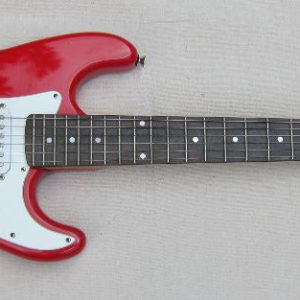 Squier Acoustic Guitar
Squier Acoustic Guitar
-
Image shows a red Squier Mini Strat guitar, a popular choice for beginners due to its affordability and playability.
-
Intermediate Acoustic Guitars: Intermediate acoustic guitars strike a balance between price and quality, often featuring solid wood tops and better hardware. These guitars offer improved sound quality and playability, making them suitable for more experienced players.
-
Price Range: ₦80,000 to ₦200,000
-
Brands: Yamaha, Takamine, Seagull
-
Features: Solid wood top (e.g., spruce or cedar), upgraded tuners, better overall construction
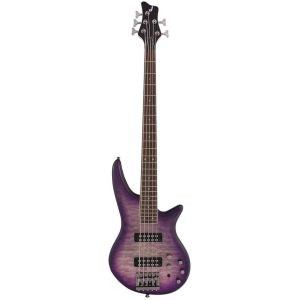 Yamaha Acoustic Guitar
Yamaha Acoustic Guitar
-
Image of a Yamaha acoustic guitar, known for its reliability and quality, making it a favorite among intermediate players.
-
High-End Acoustic Guitars: High-end acoustic guitars are crafted with premium solid woods, exceptional attention to detail, and top-of-the-line hardware. These guitars offer superior sound quality, playability, and aesthetics, catering to professional musicians and serious enthusiasts.
-
Price Range: ₦200,000 and above
-
Brands: Martin, Taylor, Gibson
-
Features: Solid wood construction (e.g., mahogany, rosewood), premium tuners, hand-crafted details, exceptional tone and resonance
-
3. What is the Average Cost of Electric Guitars in Nigeria?
Electric guitars in Nigeria come in a wide range of prices, influenced by the brand, features, and quality of components. Electric guitars often require additional investments, such as amplifiers and cables.
-
Entry-Level Electric Guitars: Entry-level electric guitars are designed for beginners and offer a cost-effective way to start playing. These guitars typically feature basic components and simpler designs.
-
Price Range: ₦40,000 to ₦100,000
-
Brands: Squier, Epiphone, Yamaha
-
Features: Bolt-on necks, basic pickups, simple controls, suitable for practicing and learning basic techniques
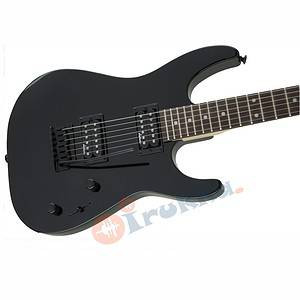 Entry-Level Electric Guitar
Entry-Level Electric Guitar
-
This is an image of a JS Series Dinky electric guitar, which is popular among beginners for its playability and affordability.
-
Mid-Range Electric Guitars: Mid-range electric guitars offer improved components, better build quality, and enhanced features compared to entry-level models. These guitars are suitable for intermediate players and those looking for better sound and playability.
-
Price Range: ₦100,000 to ₦300,000
-
Brands: Fender, Ibanez, Schecter
-
Features: Upgraded pickups, better hardware, more versatile controls, improved finishes
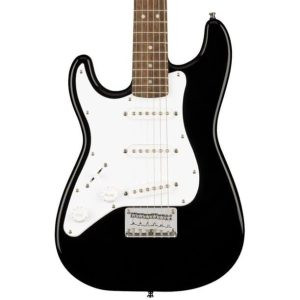 Mid-Range Electric Guitar
Mid-Range Electric Guitar
-
An image of a Fender Squier Strat electric guitar, offering a balance of quality and affordability for intermediate players.
-
High-End Electric Guitars: High-end electric guitars are crafted with premium materials, exceptional attention to detail, and top-of-the-line components. These guitars are designed for professional musicians and serious enthusiasts who demand the best possible performance.
-
Price Range: ₦300,000 and above
-
Brands: Gibson, Fender, PRS
-
Features: High-end pickups, premium hardware, exceptional craftsmanship, superior tone and playability
-
4. What is the Average Cost of Bass Guitars in Nigeria?
Bass guitars are essential for creating the rhythmic foundation in many music genres. Prices vary depending on the brand, features, and quality.
-
Entry-Level Bass Guitars: Entry-level bass guitars are designed for beginners and offer an affordable way to start learning the instrument. These bass guitars feature basic components and straightforward designs, focusing on playability and simplicity.
-
Price Range: ₦50,000 to ₦120,000
-
Brands: Squier, Yamaha, Ibanez
-
Features: Bolt-on necks, basic pickups, simple controls, suitable for learning fundamental bass lines
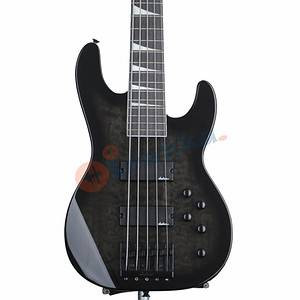 Entry-Level Bass Guitar
Entry-Level Bass Guitar
-
An image of a JS Series Concert Bass, an excellent option for beginners due to its ease of play and affordability.
-
Mid-Range Bass Guitars: Mid-range bass guitars offer improved components, better build quality, and enhanced features compared to entry-level models. These bass guitars are suitable for intermediate players and those looking for better sound and playability.
-
Price Range: ₦120,000 to ₦400,000
-
Brands: Fender, Ibanez, Sterling by Music Man
-
Features: Upgraded pickups, better hardware, more versatile controls, improved finishes
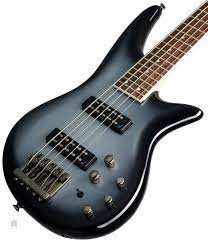 Mid-Range Bass Guitar
Mid-Range Bass Guitar
-
This image shows a Jackson 3Q Spectra Bass Guitar, offering enhanced features and build quality for intermediate bass players.
-
High-End Bass Guitars: High-end bass guitars are crafted with premium materials, exceptional attention to detail, and top-of-the-line components. These bass guitars are designed for professional musicians and serious enthusiasts who demand the best possible performance.
-
Price Range: ₦400,000 and above
-
Brands: Fender, Warwick, Spector
-
Features: High-end pickups, premium hardware, exceptional craftsmanship, superior tone and playability
-
5. Where Can You Buy Guitars in Nigeria?
Finding the right place to buy a guitar in Nigeria is essential to ensure you get a quality instrument at a fair price. Here are some options to consider:
-
Local Music Stores: Local music stores are a great place to start your search. They offer the advantage of being able to see, touch, and play the guitars before making a purchase. Knowledgeable staff can provide valuable advice and help you find the right instrument for your needs.
- Pros: Hands-on experience, expert advice, local support.
- Cons: Potentially higher prices, limited selection compared to larger retailers.
-
Online Marketplaces: Online marketplaces offer a vast selection of guitars from various brands and sellers. They often have competitive prices, and you can read customer reviews to help inform your decision. However, you miss out on the opportunity to play the guitar before buying.
- Pros: Wide selection, competitive prices, convenience.
- Cons: Cannot test guitars before buying, risk of scams or misrepresented products.
-
Authorized Dealers: Authorized dealers offer a guarantee of authenticity and quality. These dealers work directly with major brands like Fender, Gibson, and Yamaha, ensuring that the guitars are genuine and come with manufacturer warranties.
- Pros: Guaranteed authenticity, manufacturer warranties, reliable after-sales service.
- Cons: Prices may be higher compared to non-authorized sellers.
-
Private Sellers: Buying from private sellers can sometimes offer the best deals, especially for used guitars. However, it’s essential to exercise caution and thoroughly inspect the instrument before making a purchase. Meeting in person and testing the guitar is highly recommended.
- Pros: Potential for lower prices, unique finds.
- Cons: Risk of buying damaged or misrepresented guitars, no warranties.
6. What are Some Popular Guitar Brands Available in Nigeria?
Several popular guitar brands are available in Nigeria, each offering unique characteristics and price points. Here are some of the most sought-after brands:
-
Fender: Fender is renowned for its iconic electric guitars like the Stratocaster and Telecaster, as well as its range of acoustic guitars. Known for their quality and versatility, Fender guitars are a favorite among many players.
- Notable Models: Stratocaster, Telecaster, Precision Bass.
- Why They’re Popular: Versatile sound, iconic designs, trusted by professionals.
-
Gibson: Gibson is famous for its legendary electric guitars like the Les Paul and SG, as well as its high-end acoustic guitars. Gibson guitars are known for their rich tone and sustain, making them a favorite among rock and blues guitarists.
- Notable Models: Les Paul, SG, J-45.
- Why They’re Popular: Rich tone, high-quality craftsmanship, iconic status.
-
Yamaha: Yamaha offers a wide range of guitars, from affordable beginner models to high-end professional instruments. Known for their consistent quality and reliability, Yamaha guitars are a popular choice for students and experienced players.
- Notable Models: Pacifica, FG800, BB Series Basses.
- Why They’re Popular: Consistent quality, affordable options, versatile range.
-
Ibanez: Ibanez is popular for its modern designs and high-performance guitars, particularly favored by metal and rock guitarists. Ibanez guitars are known for their fast necks, versatile pickups, and innovative features.
- Notable Models: RG Series, S Series, SR Series Basses.
- Why They’re Popular: Fast necks, modern designs, favored by rock and metal players.
-
Squier: Squier is Fender’s entry-level brand, offering affordable versions of classic Fender designs. Squier guitars provide a great starting point for beginners who want the look and feel of a Fender without the higher price tag.
- Notable Models: Stratocaster, Telecaster, Precision Bass.
- Why They’re Popular: Affordable, classic Fender designs, great for beginners.
7. How Do Import Duties and Taxes Affect Guitar Prices in Nigeria?
Import duties and taxes significantly impact the prices of imported guitars in Nigeria. Understanding these costs can help you budget more accurately when purchasing a guitar from overseas or through international retailers.
-
Customs Duties: Customs duties are taxes imposed on goods when they are transported across international borders. In Nigeria, the customs duty rate for musical instruments can vary, but it typically ranges from 5% to 20% of the declared value of the guitar. The exact rate depends on the specific type of instrument and the prevailing customs regulations.
-
Value Added Tax (VAT): Value Added Tax (VAT) is a consumption tax applied to the value of goods and services. In Nigeria, the standard VAT rate is 7.5%. VAT is calculated on the total value of the guitar, including the cost of the instrument, shipping fees, and customs duties.
-
Other Charges: In addition to customs duties and VAT, other charges may include port fees, handling charges, and inspection fees. These costs can vary depending on the port of entry and the clearing agent involved. It’s essential to factor in these additional expenses when estimating the total cost of importing a guitar.
-
Impact on Prices: The combination of customs duties, VAT, and other charges can significantly increase the final price of imported guitars in Nigeria. For example, a guitar priced at ₦200,000 could end up costing ₦250,000 or more after all import-related expenses are added. This price increase makes locally available guitars and those from duty-free sources more attractive options.
-
Strategies to Reduce Costs:
- Buy Locally: Purchasing guitars from local retailers can avoid import duties and taxes.
- Check for Duty-Free Options: Some retailers may offer duty-free options or promotions that can reduce the overall cost.
- Use a Reliable Clearing Agent: A reputable clearing agent can help navigate the customs process and ensure accurate assessment of duties and taxes.
8. What Essential Accessories Will You Need and How Much Do They Cost?
When purchasing a guitar, you’ll also need several essential accessories to enhance your playing experience and maintain your instrument. Here’s a list of common accessories and their approximate costs in Nigeria:
-
Amplifier (for Electric Guitars): An amplifier is essential for electric guitars to produce sound. The cost varies depending on the brand, wattage, and features.
-
Price Range: ₦30,000 to ₦150,000+
-
Types: Practice amps, combo amps, stack amps
-
-
Guitar Case or Gig Bag: A case or gig bag protects your guitar from damage during storage and transportation.
-
Price Range: ₦5,000 to ₦50,000+
-
Types: Soft gig bags, hard cases
-
-
Guitar Strings: Strings need regular replacement to maintain optimal sound quality.
-
Price Range: ₦2,000 to ₦10,000+ per set
-
Types: Acoustic strings, electric strings, bass strings
-
-
Picks: Picks are used to strum or pluck the strings. They come in various thicknesses and materials.
-
Price Range: ₦100 to ₦1,000+ per pick
-
Types: Light, medium, heavy gauge picks
-
-
Tuner: A tuner ensures your guitar is accurately tuned.
-
Price Range: ₦3,000 to ₦20,000+
-
Types: Clip-on tuners, pedal tuners, digital tuners
-
-
Guitar Strap: A strap is necessary for playing the guitar while standing.
-
Price Range: ₦2,000 to ₦15,000+
-
Types: Leather straps, nylon straps, adjustable straps
-
-
Cable (for Electric Guitars): A cable connects your electric guitar to the amplifier.
-
Price Range: ₦3,000 to ₦20,000+
-
Types: Instrument cables, patch cables
-
-
Guitar Stand: A stand provides a safe place to keep your guitar when not in use.
-
Price Range: ₦4,000 to ₦25,000+
-
Types: A-frame stands, tripod stands
-
-
Capo (for Acoustic Guitars): A capo is used to change the pitch of the guitar.
-
Price Range: ₦2,000 to ₦10,000+
-
Types: Spring capos, clamp capos
-
-
String Winder: A string winder makes changing strings easier and faster.
- Price Range: ₦1,000 to ₦5,000+
9. Can You Find Quality Used Guitars in Nigeria?
Yes, you can find quality used guitars in Nigeria, but it requires careful research and inspection. Buying a used guitar can be a cost-effective way to acquire a higher-end instrument at a lower price.
-
Where to Look:
- Online Marketplaces: Websites like Jumia and Konga often have listings for used guitars.
- Local Music Stores: Some music stores may offer trade-ins or sell used instruments.
- Social Media Groups: Facebook groups and other social media platforms dedicated to musicians can be a good place to find used guitars.
- Classified Ads: Check local classified ads for listings from private sellers.
-
Factors to Consider:
- Condition: Inspect the guitar for any signs of damage, such as cracks, dents, or warping.
- Playability: Check the action (string height) and ensure the neck is straight.
- Electronics: If it’s an electric guitar, test the pickups, knobs, and switches to ensure they are functioning correctly.
- Hardware: Examine the tuners, bridge, and other hardware for wear and tear.
- Strings: Check the strings and replace them if they are old or corroded.
-
Tips for Buying Used:
- Meet in Person: Always try to meet the seller in person to inspect and play the guitar before buying.
- Bring a Friend: If possible, bring a friend who is knowledgeable about guitars to help you assess the instrument.
- Ask Questions: Don’t hesitate to ask the seller questions about the guitar’s history, maintenance, and any issues it may have.
- Negotiate the Price: Be prepared to negotiate the price based on the condition of the guitar.
- Get a Receipt: Always get a receipt for your purchase, including the seller’s contact information.
-
Potential Benefits:
- Lower Price: Used guitars are typically less expensive than new ones.
- Higher-End Instruments: You may be able to afford a higher-end instrument that would otherwise be out of your budget.
- Unique Finds: You may discover rare or vintage guitars that are no longer available new.
-
Potential Risks:
- Hidden Problems: Used guitars may have hidden problems that are not immediately apparent.
- No Warranty: Used guitars typically do not come with a warranty, so you are responsible for any repairs.
- Misrepresentation: The seller may misrepresent the condition or value of the guitar.
10. How to Choose the Right Guitar for Your Budget and Skill Level?
Choosing the right guitar involves balancing your budget with your skill level and musical goals. Here’s a guide to help you make the best decision:
-
For Beginners:
- Budget: ₦30,000 to ₦80,000 for acoustic guitars, ₦40,000 to ₦100,000 for electric guitars.
- Acoustic Guitars: Look for affordable models with laminate tops and comfortable necks. Yamaha FG800 and Fender FA-115 are good options.
- Electric Guitars: Squier Stratocaster and Epiphone Les Paul Special offer good value and playability.
- Focus: Prioritize playability and affordability. Don’t worry too much about high-end features at this stage.
- Tip: Consider buying a starter pack that includes essential accessories like a tuner, picks, and a gig bag.
-
For Intermediate Players:
- Budget: ₦80,000 to ₦200,000 for acoustic guitars, ₦100,000 to ₦300,000 for electric guitars.
- Acoustic Guitars: Look for guitars with solid wood tops for improved tone. Yamaha A-Series and Takamine G-Series are excellent choices.
- Electric Guitars: Fender Player Series and Ibanez RG Series offer better components and versatility.
- Focus: Seek improved sound quality, better hardware, and more versatile features to expand your playing capabilities.
- Tip: Research different body styles and pickup configurations to find the sound that suits your musical style.
-
For Advanced Players:
- Budget: ₦200,000+ for acoustic guitars, ₦300,000+ for electric guitars.
- Acoustic Guitars: Invest in high-end models with solid wood construction and premium hardware. Martin D-28 and Taylor 814ce are top-tier options.
- Electric Guitars: Gibson Les Paul Standard and Fender American Professional II offer exceptional craftsmanship and tone.
- Focus: Demand the best possible sound quality, playability, and craftsmanship. Consider boutique brands and custom options for unique instruments.
- Tip: Visit multiple music stores to play a variety of high-end guitars and find the one that truly inspires you.
FAQ: Your Questions Answered
1. How much should I spend on my first guitar?
For your first guitar, aim to spend between ₦30,000 and ₦80,000 for an acoustic guitar or ₦40,000 to ₦100,000 for an electric guitar. This range ensures you get a playable instrument without overspending.
2. What is the best acoustic guitar for beginners in Nigeria?
The Yamaha FG800 is widely recommended as the best acoustic guitar for beginners in Nigeria, offering excellent quality and playability at an affordable price.
3. Which electric guitar is suitable for a beginner?
The Squier Stratocaster is a great electric guitar for beginners, providing a classic design and reliable performance at a reasonable price.
4. Where can I find a reliable guitar teacher in Lagos?
You can find reliable guitar teachers in Lagos through local music schools, online directories, and recommendations from other musicians. Websites like guitarplayers.net can connect you with qualified instructors.
5. How often should I change my guitar strings?
You should change your guitar strings every 1-3 months, depending on how often you play and the condition of the strings. Regular string changes ensure optimal sound quality.
6. What are the best online resources for learning guitar in Nigeria?
The best online resources for learning guitar in Nigeria include YouTube channels, websites like guitarplayers.net offering tutorials and lessons, and apps like Yousician and Fender Play.
7. How do I maintain my guitar in Nigeria’s climate?
To maintain your guitar in Nigeria’s climate, store it in a case when not in use, keep it away from direct sunlight and humidity, and clean it regularly with a soft cloth. Consider using a humidifier if the air is too dry.
8. Can I rent a guitar in Nigeria?
Yes, you can rent a guitar in Nigeria from some music stores and rental services. This can be a good option for beginners who want to try out the instrument before buying.
9. What are the essential accessories for an electric guitar beginner?
Essential accessories for an electric guitar beginner include an amplifier, cable, picks, tuner, strap, and a case or gig bag.
10. Are there any Nigerian guitar brands I should consider?
While international brands dominate the market, keep an eye out for local luthiers and guitar makers in Nigeria who may offer unique, handcrafted instruments.
Conclusion: Strum Your Way to Success with guitarplayers.net
Understanding “how much is a guitar in Nigeria” involves considering various factors, from brand and type to import duties and essential accessories. Whether you’re a beginner or an experienced player, knowing the market will help you make an informed decision. At guitarplayers.net, we are dedicated to providing you with the resources and information you need to find the perfect guitar and enhance your musical journey.
Ready to start playing? Explore our lessons, reviews, and community forums at guitarplayers.net. Discover the joy of playing guitar and connect with fellow musicians across America! Whether you’re searching for beginner lessons, advanced techniques, or the latest gear reviews, guitarplayers.net is your ultimate resource.
Address: 1140 Boylston Street, Boston, MA 02215, United States
Phone: +1 (617) 747-2261
Website: guitarplayers.net
Visit guitarplayers.net today and take the first step towards mastering the guitar. Your musical adventure awaits!
